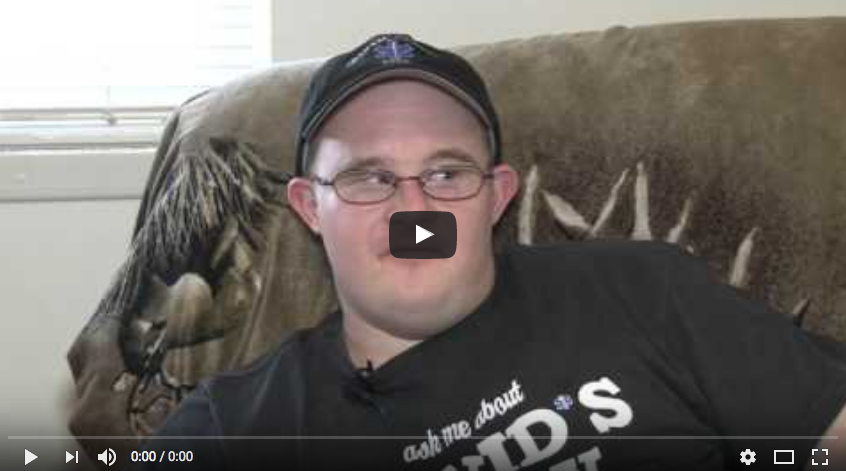The SimplyHome Personal Emergency Response System uses a phone line or cellular connection to activate a notification to our trained responder call center, should you have a need. When assistance is needed, the panic button or base unit button can be pushed to request help. The two-way speaker on the base unit allows for communication with care staff.
Read MoreWith the help of SimplyHome technology, Laura and Vicki were able to move from the transition home to their permanent residence within months, as opposed to possibly years without assistive care technology.
Read MoreAs a company that values people, we want to do more than create outcomes with technology. We also want to provide a platform for voices to be heard so others can be inspired by the passions, visions, and courage these individuals have to share. Check out our latest video where the individuals we work with tell us WHO they are and WHAT they want.
Read MoreDakota is a young man who desired to live on his own. Dually diagnosed with mental health issues and IDD, he had been hospitalized twice for aggressive behavior that injured other adults. Dakota’s mother, however, knew that with the right natural supports, he could live in a supported community setting rather than in a group home. His team agreed that given his behavioral challenges, living alone could actually be a better option than congregate living.
Read MoreDavid's Vision is David's dream of one day building a log cabin for himself on some family property with his red pickup truck and coon dog by his side. The purpose of David’s Vision is to help others with I/DD to attain safe, affordable independent housing.
Read MoreAmerican retirees these days are gravitating toward the notion of staying put and "aging in place" rather than moving to sunnier climes, new data show.
USA Today reported an AARP study found the overwhelming majority of people 50 years of age and over want to remain in their home and community “for as long as possible.”
Read MoreHighlighting the often unnoticed role that siblings play in the lives of special-needs children.
Read MoreGiving technology a try means doing research on what you or your loved one actually needs. Are you afraid of falling and not having the ability to call someone? Are you worried about taking medicine on time? Is wandering a concern for you? With the help of family and professionals, it is crucial to decide what your priorities look like.
Read MoreListen to what Former First Lady Laura Bush has to say about aging gracefully, her worries of aging and what she is doing to keep her mind sharp.
Read MoreFunding over 42 dreams of higher education, Ruby's Rainbow is using University Participant Programs to bring students with Down Syndrome to college.
Read MoreComplex problems call for innovative solutions, so we recognized that by combining SimplyHome technology with HomeWatch CareGivers visits, we can provide the greatest level of care at the most affordable total cost. We are proud to work with the SimplyHome team to offer creative options to keep our most vulnerable citizens safe at home," stated Ernie Konkoli, President, HomeWatch CareGivers.
Read MoreThe view that innovation has nothing to do with age is supported by research of Benjamin Jones of Northwestern University. He states that a 55-year-old and even a 65-year-old have significantly more innovation potential than a 25-year-old. He based his conclusions on data on Nobel Prize winners and great inventors.
Read MoreIt appears as though the baby boomers have no intentions of slowing down any time soon. Murray discusses the benefits of having employees of the “Baby Boom” generation, the benefits that those employees can take advantage of and why it is important we keep an eye on them.
Read MoreLOUISVILLE, Ky. — A mother needs to get her son out the door. Thick white socks cover his contorted feet, a coat drapes his twisted shoulders, a water bottle with a straw nestles in the concave of his chest, and black straps on his wheelchair secure his wrists. He is 33 years old, and she has to get him to an appointment.
Read MorePlaying a song from the past won't make it easier for patients to remember individuals, but it will cut down on stress.
In patients with Alzheimer's disease, songs from the past can have an almost magical ability to trigger memories—even when someone previously couldn't recognize family members or even have a conversation.
Read More


